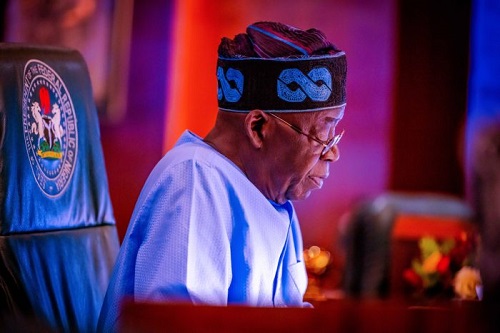This post has already been read 1761 times!
Nigerians are facing increasing hardship and hunger due to inflation, food insecurity, and shrinking purchasing power under the administration of President Bola Ahmed Tinubu. The economic team, including the Minister of Finance, Olawale Edun, the Minister of Budget and National Planning, Atiku Bagudu, and the Governor of the Central Bank of Nigeria, Olayemi Cardoso, appears overwhelmed by the country’s challenges, and current interventions have not been effective in addressing the growing hardship.
The Naira has significantly depreciated against the US dollar, increasing from N460.702 per dollar in May last year to N1,534.39 currently. Additionally, removing fuel subsidies has led to a rise in fuel prices to over N550 per litre from N238 in May 2023. Inflation rates have also soared, with the inflation rate standing at 28.92% in December and food inflation reaching 33.93%.
These factors have resulted in a sharp increase in the prices of food items and other goods and services. For example, the price of a 50kg bag of rice has increased from N35,000 to N65,000, beans rose from N800 to N1,600 per mudu, and a carton of noodles increased from N6,000 to N11,140. This has significantly strained people’s purchasing power, with many struggling to afford basic necessities.
The International Monetary Fund (IMF) has warned that Nigeria is experiencing a deepening economic crisis, amplifying the plights of the citizens. Nigerians have taken to the streets to protest against the rising cost of living.
In response to the crisis, President Tinubu recently ordered the release of 102,000 metric tons of rice and maize to Nigerians. However, experts argue that this measure alone is not enough to address the root causes of the problem.
Economists recommend driving import substitution strategies to address the country’s economic challenges. The economy needs to be diversified and less reliant on oil, with a focus on agriculture, industry, and technological innovation. Additionally, measures such as price-fixing policies for food items and monitoring excessive profits by traders could help alleviate the burden on consumers.
In the long run, the country should aim for self-sufficiency in food production and reduce dependence on imports. Staples like rice, beans, and millet could be banned from being imported to strengthen local production and encourage exports.
Overall, the government needs to take swift and decisive action to address the economic crisis and alleviate the suffering of Nigerians. This includes implementing effective policies, diversifying the economy, and cracking down on economic infractions and rent-seeking behaviors.



